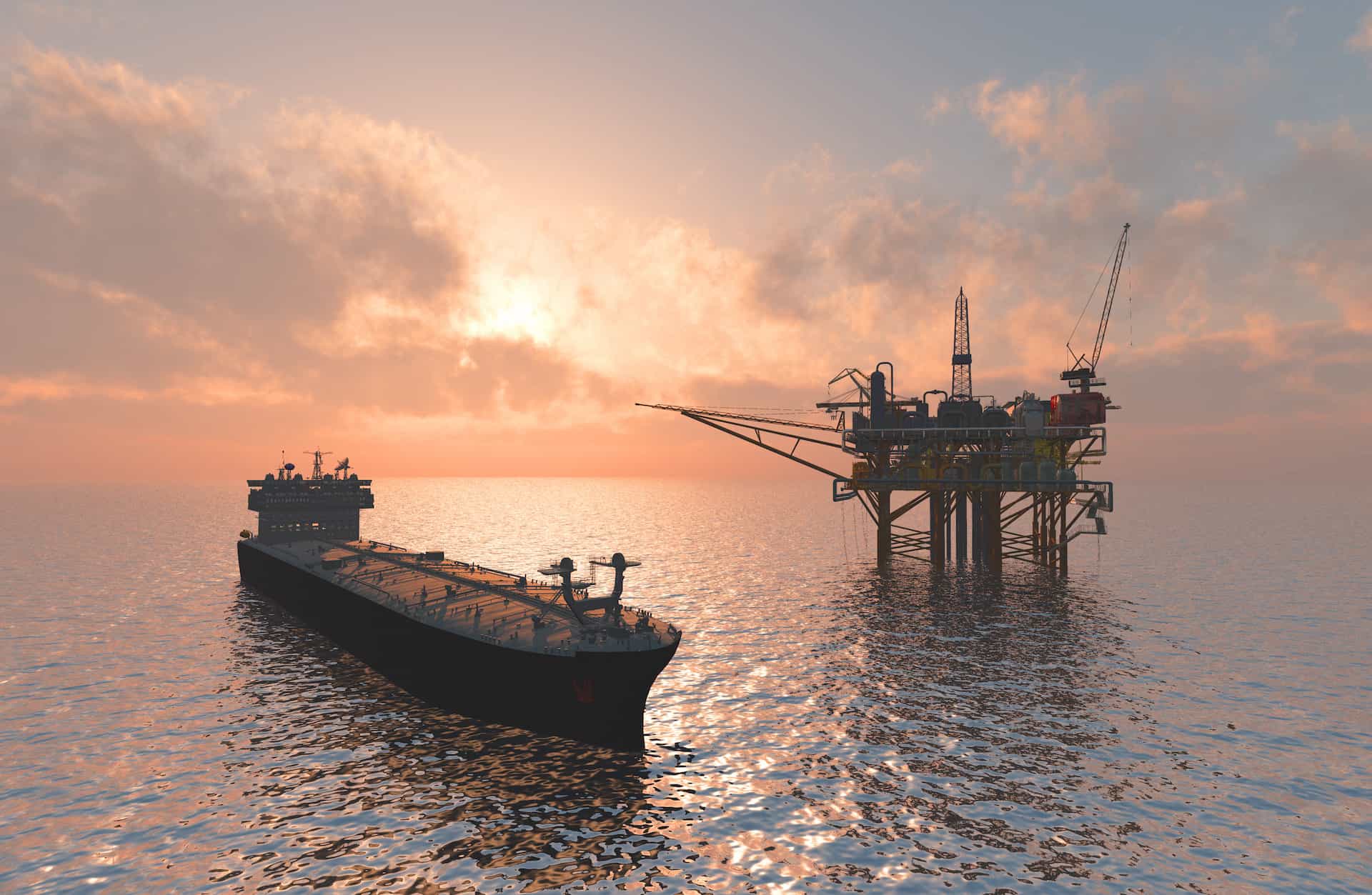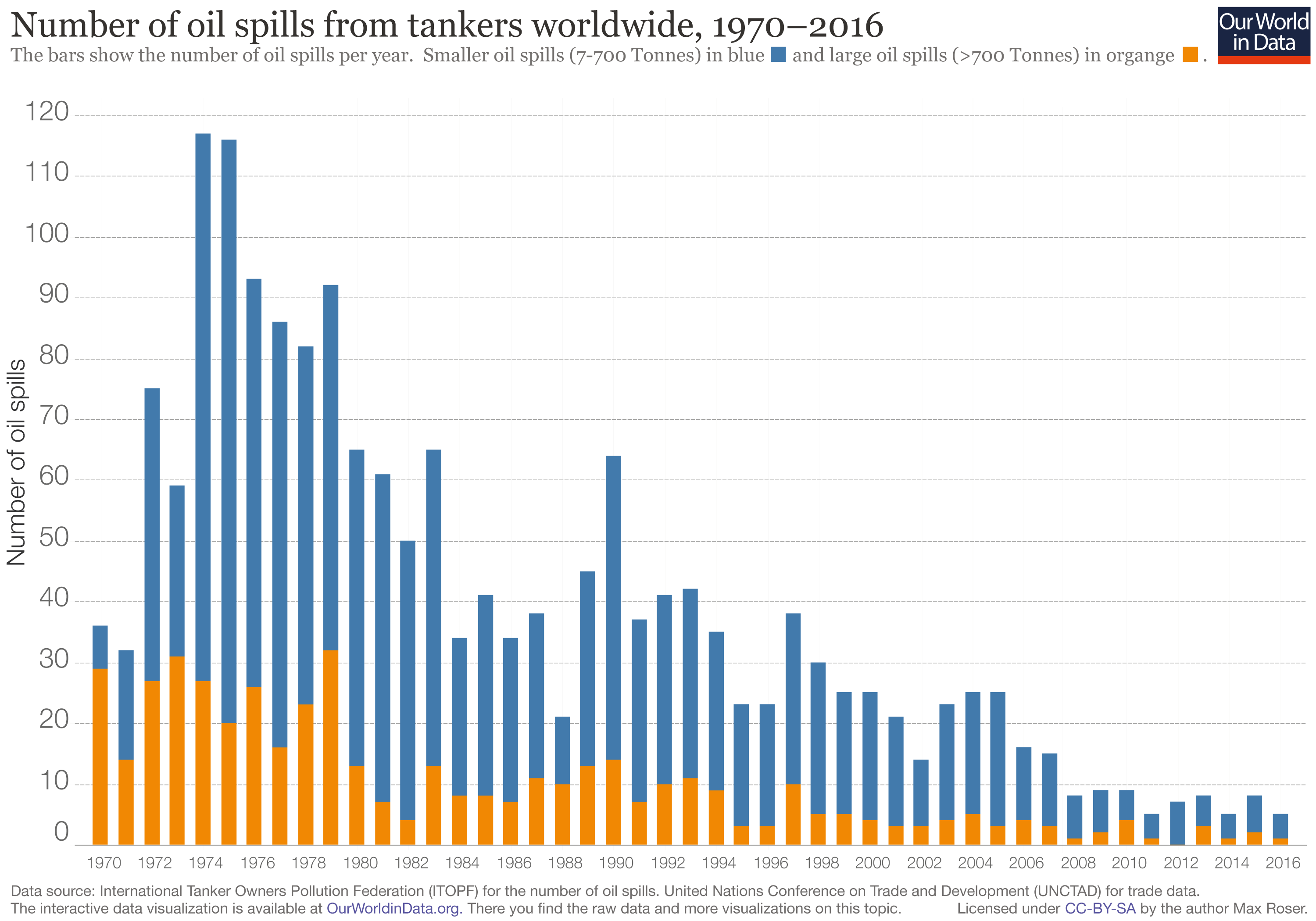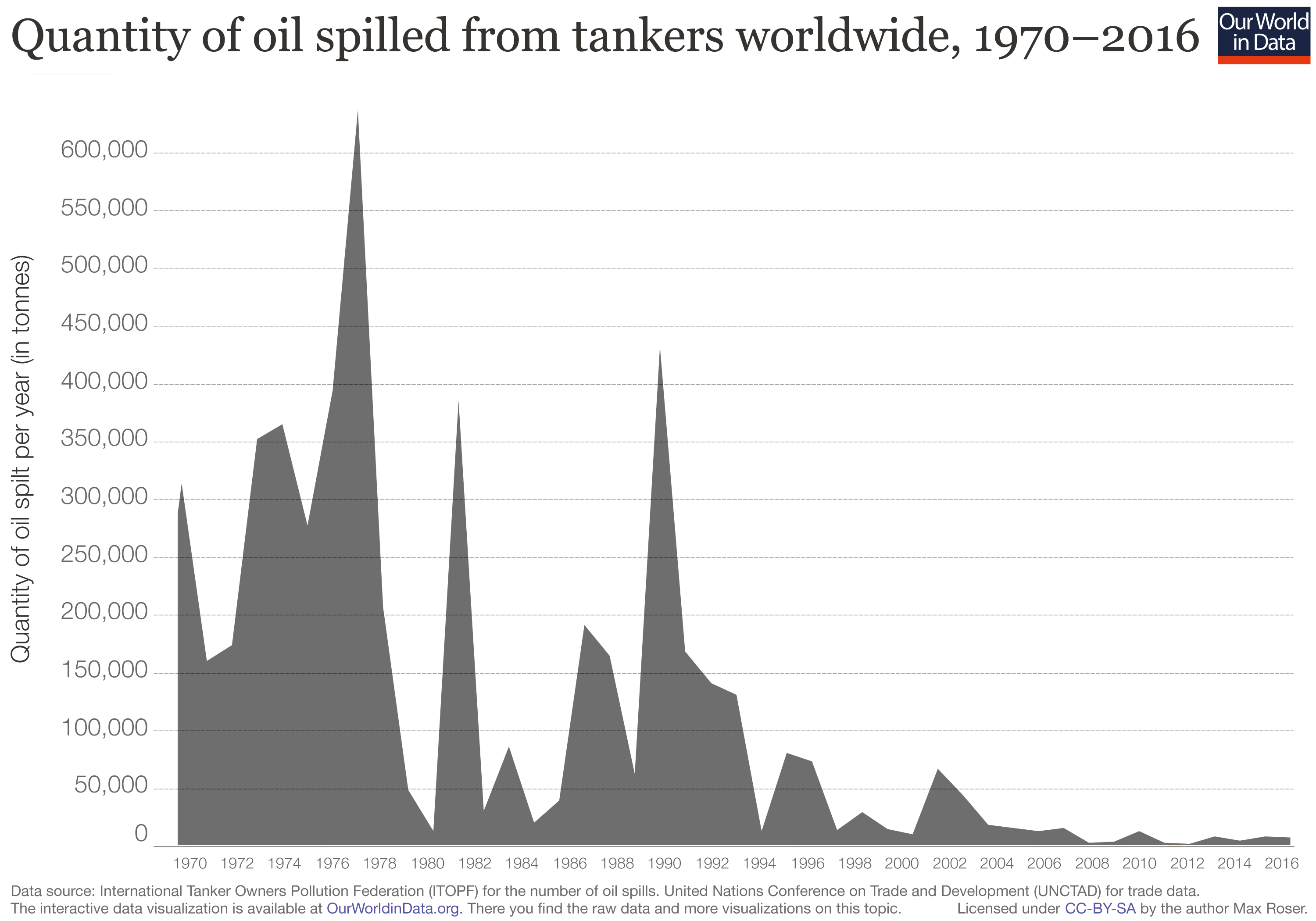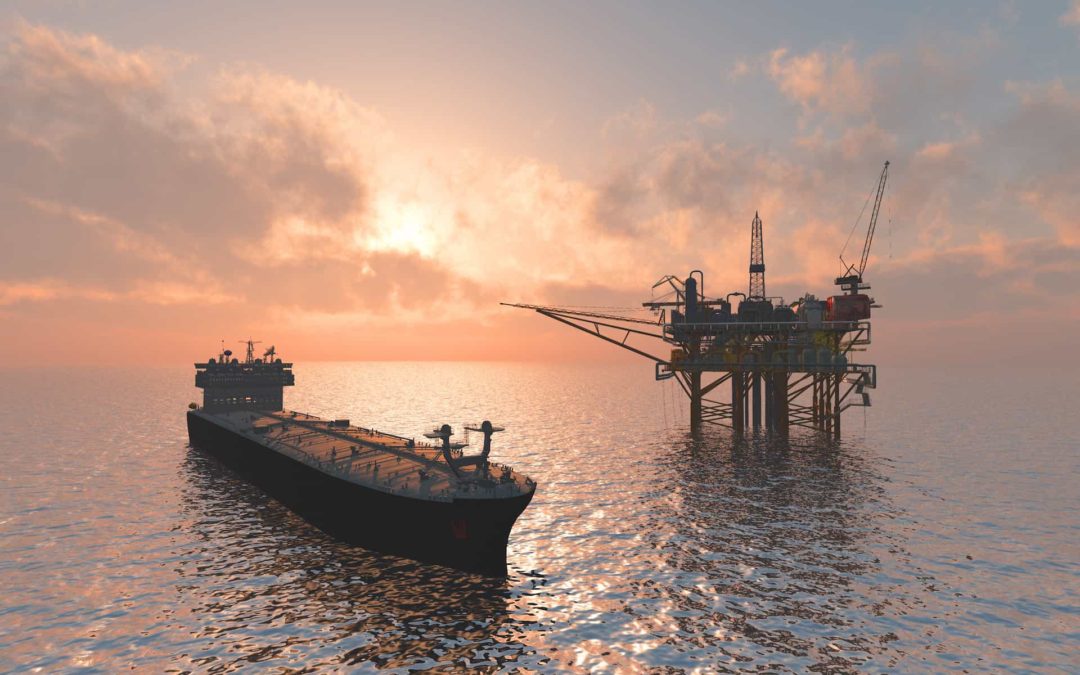
Oil spills usually occur in two different ways. Either it is an oil source, or oil platform, that is leaking or it is a ship with oil in the tanks that for some reason leaks or sinks.
It also happens that ships intentionally empty their tanks after they have been cleaned. This is of course illegal. Whatever the reason, this means that oil spreads into the sea and washes up on beaches, which, not least in the case of large spills, causes suffering for both animals and humans.
But in the last 45 years, the period for which there is data, oil emissions from tankers have decreased significantly, according to statistics from Our World in Data.
Data from the International Tanker Owners Pollution Federation (ITOPF) covers over four decades and during this time period the incidence of large oil spills from tankers has decreased very sharply.
During the 1970s, there were 24.5 large, ie over 700 tonnes, oil spills per year. The corresponding figure for the 2010s is 1.7 oil spills per year.

Both large oil spills and medium-sized oil spills, 7-700 tonnes, are decreasing and this took place during a period when global trade in petroleum and gas products increased. Included in the trade statistics are trade in LNG, LPG, naphtha, petrol, aviation fuel, kerosene, light oil, heavy fuel oil and others, according to the source UNCTAD.

The amount of oil released has also decreased very sharply. ITOPF estimated that between 1970 and 2016, approximately 5.73 million tonnes of oil were lost due to tank incidents.
Since occasional major incidents can be responsible for a large proportion of all oil spilled in a given year, such as Exxon Valdez, it is advisable to look at trends or averages for decades.
During these 43 years, the annual amount of oil spilled decreased enormously. During the 2000s, the amount of oil spilled was less than in several individual years in previous decades. In 2012, the lowest oil spill to date took place: 1,000 tonnes.





